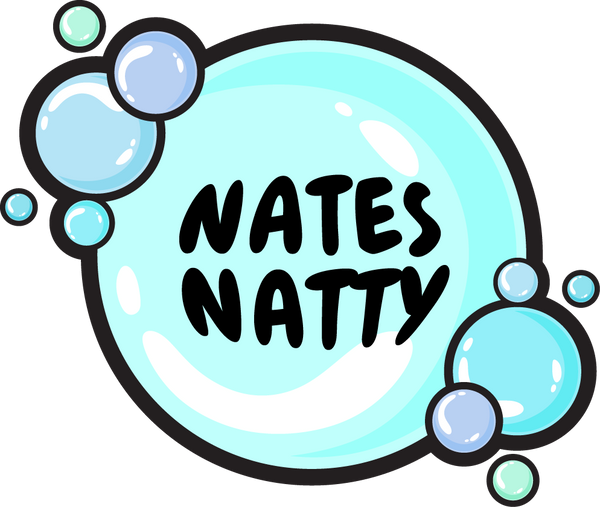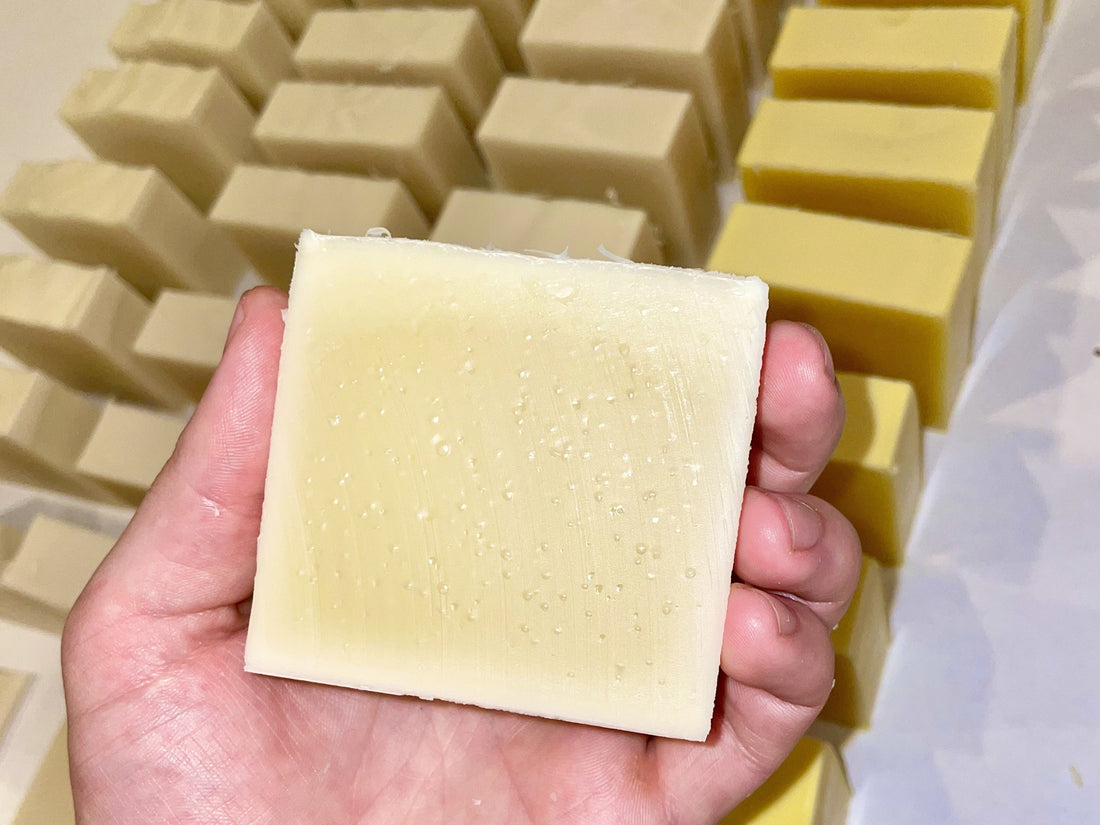Cold process isn’t just some trendy label we slap on soap to sound artisanal. It’s the real deal. This method’s been around for centuries. No shortcuts. No melt-and-pour kits. Just oils, lye, time, and a little bit of chemistry.
At its core, cold process soap is made by mixing oils and fats (stuff like coconut oil, olive oil, beef tallow) with lye (sodium hydroxide). That combo kicks off something called saponification, which is a fancy word for “turning oil into soap.”
That process gives you two things:
- Soap – the part that actually gets you clean
- Glycerin – a naturally occurring moisturizer that commercial soaps often strip out
We don’t add heat. We don’t rush it. We pour the mix into molds and let it hang out for about 24 hours and then unmold it, cut it and then cure it for 4 to 6 weeks. It’s slow, but it’s worth it.
Wait, Lye? Isn’t That Dangerous?
This trips a lot of people up, and I get it. Lye is caustic on its own. But here’s the key: by the time the soap is fully cured, there’s zero lye left. None. It all gets used up during saponification.
So the final bar? Totally safe. Actually, it’s gentler than most of the mass-produced stuff on the shelves.
How’s It Different from Store-Bought Soap?
Most big-name soaps aren’t really soap. They’re synthetic detergent bars. Made with petroleum-based ingredients, sulfates, artificial fragrances, preservatives. The kind of stuff that can leave your skin dry, tight, or straight-up irritated.
Cold process soap, on the other hand:
- Uses real, nature-based oils and butters
- Keeps all the naturally occurring glycerin
- Skips the synthetics, dyes, and sketchy preservatives (in most cases)
- Breaks down naturally- no plastic waste, no weird chemicals
The Science Behind Why It’s Better
Let’s nerd out for a sec.
Think of Glycerin as your skin’s best friend
It’s what helps your skin hold onto moisture. It literally draws water into the outer layer of your skin, which keeps it feeling hydrated and soft. It also helps with your skin’s natural turnover process- aka getting rid of dead skin cells without being harsh.
Low Waste, Low Impact
Bar soap has a way smaller footprint than liquid soap. Like, way smaller.
- 10x less carbon emissions
- 5x less energy to produce
- 20x less packaging energy
- And if it’s made right (like we do), it’s biodegradable and much safer for greywater systems and natural environments.
No Junk = No Drama
If you’ve got sensitive skin or you’re just tired of mystery ingredients in your shower, cold process soap keeps it simple. No SLS. No parabens. No colorants or artificial fragrance blends with 30+ chemicals you can’t pronounce.
The Bottom Line
Cold process soap is...
- Made with natural, skin-loving oils
- Packed with glycerin to lock in moisture
- Good for the planet, easy on your conscience
- Actually cleans without stripping your skin No synthetics, no BS
Want to Try the Real Stuff?
I (Nate, hi how are ya) make every bar of Nate’s Natty soap by hand in small batches. No preservatives, no harsh chemicals, just clean, effective ingredients that work.
Start with a Base Camp Bar or grab a few Go Bars for your pack, gym bag, glove box, whatever. They’re travel-ready and hit hard on odor, sweat, and grime, without ever being harsh on your skin.
Check it all out at www.natesnatty.com
Everything’s hand-picked and shipped out by me. Would love for you to try it. Seriously.
Let’s clean up the game.

